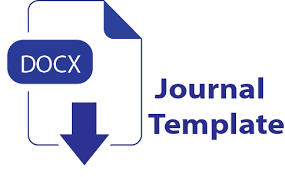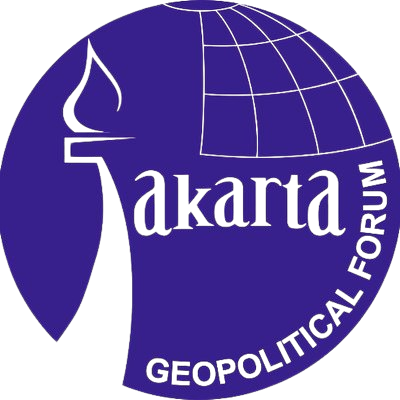RENEWABLE RESOURCES EXPORT OPPORTUNITIES: ACCELERATING DEVELOPMENT
DOI:
https://doi.org/10.55960/jgf.v9i1.289Keywords:
Clean Development Mechanism (CDM), Energy exports, Energy geopolitics, Renewable energy transition, Sustainable industrializationAbstract
The transition to clean energy systems across the world offers both challenge and opportunities for resource-rich developing countries like Indonesia. Even as the country continues to export large volumes of natural gas, falling domestic quotas and pressure to decarbonize internationally are pushing the country increasingly toward wind and solar power. This paper investigates Indonesia’s potential to export renewable energy through bio-based biogas, biomethane, and bio-LNG. Based on a qualitative content analysis of policy documents, institutional reports and international accords, the analysis struggles with an enlargement of the mismatch between ambitious national goals and crawly domestic measures. Given regulatory and infrastructure limitations, the potential for biomass may be relatively unexploited; nevertheless, biomass in Indonesia does remain among the greatest compared to many competitive countries regarding logistics, rising by virtues of geographic placement and export infrastructure. International demand, which results from carbon pricing and fuel standards, as well as corporate decarbonization commitments, opens immediate export market opportunities for renewable energy. Examples from previous instruments, like the Clean Development Mechanism, show how global incentives can quickly lead to investment in green infrastructure. The results highlight the necessity of export-oriented approaches to induce the energy transition in Indonesia, and possible policy reforms to unlock domestic and international value chains.
Downloads
References
1. Zuev V. Setting Up a Global System for Sustainable Energy Governance. In: Hafner M, Tagliapietra S, editors. The Geopolitics of the Global Energy Transition [Internet]. Cham: Springer International Publishing; 2020. p. 365–81. Available from: https://doi.org/10.1007/978-3-030-39066-2_16
2. Blondeel M, Bradshaw MJ, Bridge G, Kuzemko C. The geopolitics of energy system transformation: A review. Geogr Compass. 2021 Jul 1;15(7):12580.
3. Azzahra A. Energy Geopolitics in the Transition Era: Indonesia’s Strategy in Creating Energy Security Amidst Global Crisis. J Polit Innov Anal. 2025;2(1):12–21.
4. Wagner T. Jakarta Geopolitical Forum IX/2025. 2025 [cited 2025 Aug 1]. Renewable Resources Export Opportunities: Accelerating Development. Available from: https://www.youtube.com/watch?v=DK6je9dj94I&t=18180s
5. Wagner T. Renewable Resources Export Opportunities Accelerating Development. Jakarta; 2025.
6. Aditya IA, Wijayanto T, Hakam DF. Advancing Renewable Energy in Indonesia: A Comprehensive Analysis of Challenges, Opportunities, and Strategic Solutions. Vol. 17, Sustainability. 2025. p. 1–20.
7. Mangla A. Geopolitics of Renewable Energy: Shaping the Global Power Landscape. Gyan Manag J. 2023;17(2):75–80.
8. Scholten D, Bazilian M, Overland I, Westphal K. The Geopolitics of Renewables: New board, New Game. Energy Policy. 2020;138(1):111059.
9. Driscoll D. Comparative Green Advantage: Growth Regimes and Public Investment in Renewable Energy R&D. JCMS J Common Mark Stud. 2024 Jan 1;62(1):285–94.
10. Lin CY, Chau KY, Tran TK, Sadiq M, Van L, Hien Phan TT. Development of Renewable Energy Resources by Green Finance, Volatility and Risk: Empirical Evidence From China. Renew Energy. 2022;201(1):821–31.
11. Uzar U. Political Economy of Renewable Energy: Does Institutional Quality Make a Difference in Renewable Energy Consumption? Renew Energy. 2020;155(1):591–603.
12. Sohail MT. Evaluating Policy-Driven Capital for Renewable Energy Investments in The Presence of Cross-Sectional Dependence: Perspectives From Financial Institutions and Markets. Environ Sci Pollut Res. 2023;30(45):101501–10.
13. Budiarto AW, Surjosatyo A. Indonesia’s Road to Fulfill National Renewable Energy Plan Target in 2025 and 2050: Current Progress, Challenges, and Management Recommendations – A Small Review. IOP Conf Ser Earth Environ Sci. 2021;940(1):12032.
14. Martono A, Widjaja AE, Raihan R, Khairunnisa N, Prabowo DA. Influence of External Factors on Renewable Energy Acceptance in Indonesia. In: 2024 3rd International Conference on Creative Communication and Innovative Technology (ICCIT). 2024. p. 1–7.
15. Ordonez JA, Jakob M, Steckel JC, Fünfgeld A. Coal, power and coal-powered politics in Indonesia. In: The Political Economy of Coal. London: Routledge; 2022. p. 19.
16. Xu Y, Ji M, Klemeš JJ, Tao H, Zhu B, Varbanov PS, et al. Optimal Renewable Energy Export Strategies of Islands: Hydrogen or Electricity? Energy. 2023;269(1):126750.
17. Saunders M, Lewis P, Thornhill A. Research Methods for Business Students by Mark Saunders, Philip Lewis and Adrian Thornhill 8th edition. [Internet]. Research Methods For Business Students. 2015. 768 p. Available from: https://www.google.co.id/books/edition/Research_Methods_for_Business_Students/0DHFsgEACAAJ?hl=en
18. Krippendorff K. Content Analysis: An Introduction to Its Methodology [Internet]. SAGE Publications; 2018. 472 p. Available from: https://methods.sagepub.com/book/mono/content-analysis-4e/toc
19. Nabila R, Hidayat W, Haryanto A, Hasanudin U, Iryani DA, Lee S, et al. Oil Palm Biomass in Indonesia: Thermochemical Upgrading and Its Utilization. Renew Sustain Energy Rev. 2023;176(1):113193.
20. Yuniarto B, Nurani R, Apriyono A, Rahmawati R, Nurfadilah N. The Role of Geopolitics on Economic Growth in Indonesia. Am J Open Res. 2024;3(9):251–7.
Downloads
Published
Conference Proceedings Volume
Section
License
Copyright (c) 2025 Author

This work is licensed under a Creative Commons Attribution-ShareAlike 4.0 International License.










